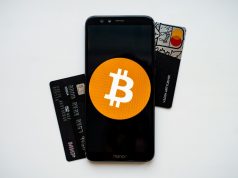It’s common for different economists to disagree on various matters. After all, it’s a science that can also be tied up in different ideologies and schools of thought. One of the most pressing debates of the moment is whether Bitcoin and other cryptocurrencies should be regarded as money or as an asset. In fact, there are even academic papers being written on the subject, which arrive at different conclusions.
It’s easy to see why the confusion and debate has arisen. After all, Bitcoin has many of the key characteristics of both an asset and a currency. For example, it first came to the more widespread attention of the public when its value saw dramatic rises in 2010 and 2011. There were frequent stories in the press that early investors who had seen the potential of Bitcoin were becoming millionaires virtually overnight.
This helped to cement it in people’s minds very much as an asset, much like gold or stocks and shares. That a vanishingly small number of places and businesses accepted Bitcoin as payment also meant that it made no real foothold in people’s consciousness as a currency.
Naturally, this wasn’t helped by the fact that there was, and still is, a certain mystery about how to obtain and use Bitcoin, certainly for people who are not totally versed in the ways of the digital age. However, there is reason to believe that cryptocurrencies are now beginning to get some real traction as methods of payment with more and more businesses in different sectors, from travel to technology, starting to accept them.

One area that is leading the way is the online casino industry. There are many features of cryptocurrencies that make them a perfect fit for players, and the first of these is the safety and security of transactions with this payment method. The blockchain technology that underpins all cryptocurrencies also means that both casinos and players can have 100% confidence in the system. That these transactions can take place in a fraction of the time of some bank transfers is another major plus.
Some online casinos are going even further by accepting Non Fungible Tokens as payment options. These muddy the currency/asset waters even more, as they are seen as investments in a range of items from artworks to unique Beatles memorabilia.
This blurring of the lines might also suggest that the traditional division between assets and currencies may soon cease to matter very much. This potentially opens the way for a complete upheaval in the way economies work – and makes the use of so-called fiat currencies look distinctly inflexible and old-fashioned.
After all, all currencies only have worth because of the faith and trust we put into them having any value at all – a fact that has become ever more true since the gradual dropping of the gold standard.
So, as the uses of cryptocurrencies expand, perhaps the question of asset or currency may cease to matter in any meaningful way at all.








